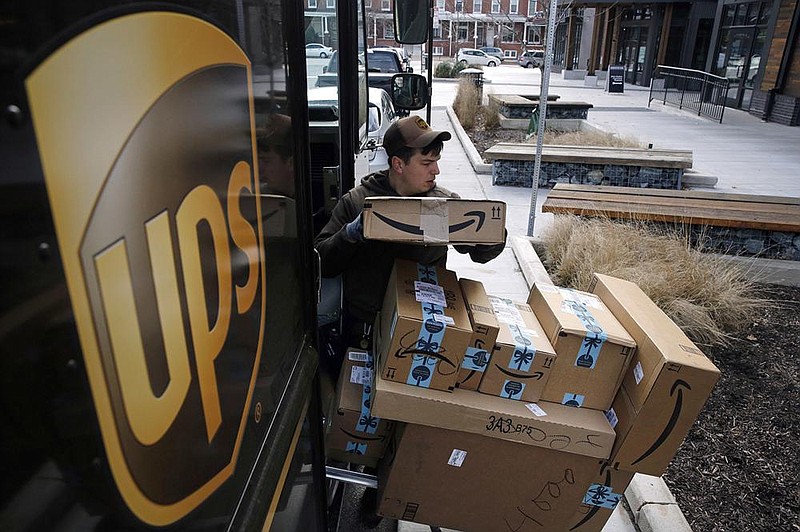United Parcel Service said Wednesday that it plans to hire more than 100,000 extra workers to help handle an increase in packages during the Christmas season.
Online shopping has been growing for years, and the pandemic has given it an extra boost as some shoppers avoid going to stores.
"We're preparing for a record peak holiday season," Chief Human Resources Officer Charlene Thomas said in a statement. "The covid-19 pandemic has made our services more important than ever."
UPS, FedEx Corp. and other couriers have been inundated with residential demand since the virus took hold in the U.S., while business deliveries have suffered because of the lockdowns. Now, most state economies are reopening, and the return of commercial demand coupled with the surge in holiday online shopping promises to make this year the busiest ever for couriers.
FedEx last week announced that it plans to hire about 70,000 workers, a 27% increase from a year ago. The company also moved up its prediction for the U.S. package market to reach 100 million daily deliveries by three years, to 2023.
The seasonal hiring would be about the same as what UPS announced before Christmas in 2018 and 2019. Holiday-season volumes usually start rising in October and remain high into January.
The Atlanta-based company said it will have full-time and part-time seasonal jobs, mostly package handlers, drivers and driver helpers. UPS touts the seasonal jobs as ones that can lead to year-round employment, saying that over the past three years, about 35% of people in seasonal package-handling jobs wound up in permanent positions.
Both delivery giants have seen a boom in residential deliveries since lockdowns kept consumers out of stores and as the fear of contracting the virus has limited their shopping trips. That has already led to more hiring.
UPS said last month that it added 39,000 employees in the April-through-June quarter to handle the increase in residential deliveries. The company predicted that the high volumes will continue, although it couldn't say for how long.
More lucrative deliveries to businesses have declined, however. And the residential deliveries are more costly because they tend to be more spread out.
Last year, UPS held job fairs to recruit seasonal workers. The company hasn't decided whether to hold those events this year. If it does, they will likely be a combination of online and in-person events, with social distancing and mask rules in place, a spokesman said.
UPS is the only major courier with a unionized workforce, putting pay among the highest in the industry. Part-time package handlers earn $14.50 an hour, and seasonal drivers can make as much as $21 an hour, the company said.
Still, UPS is sweetening its job offer for students, who can qualify for a bonus of up to $1,300 for college expenses.
In recent years, tight job markets made it harder for UPS, FedEx and big retailers to find enough seasonal workers. They had to raise pay. Now, however, there is a large pool of available workers.
The government says U.S. unemployment was 8.4% in August. That is down from recent months but still more than twice the rate before the pandemic. Half the jobs lost in the early days of the outbreak have not come back.
Information for this article was contributed by David Koenig of The Associated Press and Thomas Black of Bloomberg News.
